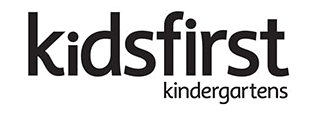
The Power of Parent Play
The benefits of taking the time to play with your child.
It may seem like a simple game of peekaboo, hide-and-seek, or tag – but for young children social activities teach essential skills to help grow lively brains, and healthy bonds.
“When tamariki play, they are engaging their critical thinking and problem solving abilities, and making sense of the world around them,” says Kidsfirst Learning Support Leader, Hannah Winter. “They learn social interaction techniques like turn-taking, being sensitive to others, and sharing – which helps them communicate their thoughts, feelings, and needs – and even support children in learning to cope with stress.”
In their role as tamariki’s first teachers, parents, whānau, and caregivers have a vital role in promoting this all-important activity – giving children plenty of opportunities to engage in play, and taking time out to join in.
“This is where children learn about who they are, and what they can do. We say play is the children’s ‘work’, so if parents can get involved, it creates the scaffolding to build skills they can use in the wider world.”
Hannah says that while self-directed play is important, it can offer a more enriched experience when whānau are involved.
“Sometimes people think it’s just something children can instinctively do, but actually, if we can join in, and show genuine interest in what they’re doing – that’s when they are going to pay the most attention, and that's when the learning truly happens.”
These are the things that will lead to lifelong learning. “Whānau can help with techniques like problem solving, exploring ideas and using their imagination and creativity. It’s one of the best ways to help them grow into curious, and competent learners.”
Playing with whānau can also offer perspectives that children may not get from engaging with peers.
“They are naturally exploring the things around them, so if parents and family are there, they can provide rich dialogue to explain what they’re doing, and help them understand. Then they are picking up new skills with a competent partner who is showing them what they’re doing is valuable.”
“Play is all about going back to basics,” says Hannah, “we can think about the relationships with our children like a tank that needs to be filled, and refilled on a regular basis - play is the best, most effective, and low cost strategy to do this.”
She says the focus should be on quality time, and letting tamariki take the lead. “It doesn’t take much – just five to ten minutes of child-directed play where there are no other jobs to do and limited distractions, then let them guide the activity based on what they want to do.”
Young tamariki learn best in the context of strong relationships, and the parent-child bond is a great starting point, says Kidsfirst Ngaire Larcombe Head Teacher, Erna Delaney.
“The skills they gain by playing with parents are coming from their strongest relationship. When tamariki feel as though people are interested in what they’re doing, it increases self-esteem and sense of worth – which progresses their emotional and social competence.”
Learning at home also overflows into the kindergarten environment. “This aids in the development we see in the classroom. The more whānau can talk and listen to tamariki, the more they learn from the experience. It creates a good connection between kindy and home.”
Erna says whānau can learn a lot about their child through simple activities, but the main priority is time together.
“It can be as easy as putting down phones for 10 minutes, and just having fun – it’s so basic for children, but important for that bond. It can be anything, even preparing a meal, or reading a book, just being together, showing attention, and letting them take the lead.”
Kidsfirst Greymouth Head Teacher, Tracy Jennings, reiterates that another perk of parent-play is strengthening relationships.
“Getting down and playing at their level is great for developing a strong, fun relationship with your child. It’s important to be guided by what tamariki are interested in, and just enjoy the moment.”
Tracy says it’s not just the tamariki who benefit, “Parents can learn a lot about their child by being there, and engaging in fun activities. It’s about just being together and enjoying it – whether it’s a puzzle, dancing around, playing games or reading books – just allowing that connection to grow.”
“It’s essential for the relationship: often there can be tension or stress in families, and these can feel like very challenging times for children as well. But it’s important for tamariki to see their parents having fun too, even if it’s just for ten minutes being silly – they will remember those moments forever.”
As adults, we often lose the capacity for play, but there are many ways to get back into the swing of things. Tracy says, “Books are always a fantastic starting point, and they’re great for language development. It can also be good for a parent to think about what they loved doing as a child, share that with tamariki, and go from there.”
Keen to learn more? Our kaiako use the PRIDE formula, and it’s a good one to put into practise at home.
P - “Praise” - Make sure to celebrate all the ways your child is exploring and testing out new ideas, this encourages positive behaviours and warmth.
R - “Respect” - Tamariki are directing the play, so make sure to let them control the conversation and determine the activities. It’s important to reflect on what they’re doing and show interest, without taking total control over the situation.
I - “Imitate” - While your child is leading the play, imitate what they’re doing and show them you are on the same level.
D - “Describe” - Comment on what they’re doing, show interest and try to hold their attention. This helps increase their problem solving, emotional regulation and vocabulary skills.
E - “Enjoy” - Make the most of the dedicated playtime and be enthusiastic about it.
JOIN OUR WHĀNAU
You might be interested in...





